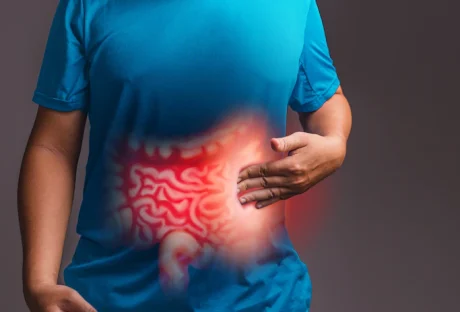Tag: what causes digestive problems

How To Sleep Better If You Suffer From Digestive Problems
Sleep is important to your general health. Without it, numerous aspects of your physical and mental well-being can suffer sharp declines. Moreover, sleep must be approached with precision, with acute amounts needed for a healthy night’s rest. Of course, everyone suffers the odd disruption in their life, but these fleeting instances must never become a prolonged pattern. When you have digestive problems, the threat of constant disturbances to your sleep becomes more prominent. A careful balancing act is required to mitigate the issue and eventually resolve it entirely if possible. How should you proceed in these circumstances? After the jump, you will find some tips that, if followed, should help you sleep better if you suffer from digestive problems. 5 Ways to Go Through to Sleep Better If You Suffer From Severe Digestive Problems 1. Research Gut Problems and Solutions Know that what goes on in your gut can affect what goes on in your mind. If the latter is overactive, sleep will be harder to secure. Dr. Michael Ruscio suggests that cognitive health and a healthy gut are linked. He has a personalized approach to practical, science-based advice on bettering this situation. There are also expert insights around the role of probiotics and how they can help your body find harmony too. Read the positive testimonials about how his wisdom has helped others with their bodies. Take your strategies seriously and start by being informed by experts in well-being matters. Engage with different resources and pool responses. What has worked for others? Which methods have been scientifically tried and tested? The specialist recommendations are often effective, but they can also give you enormous comfort and confidence in improving your sleep, digestion, and, ultimately, your overall health. 2. Schedule Your Eating Not every digestive problem causing disrupted sleep is elaborate and scientific. All meals should be consumed 3 hours before bedtime. Refrain from snacking too late as well. Sleep is supposed to be your body’s time for rest. By eating so close to that period, you make your digestive system do overtime in terms of work. Things like heartburn, bowel movements, acid reflux and indigestion can occur. That extra snack or late meal might seem more enjoyable and convenient for you, but you are ultimately doing yourself a disservice. Of course, not all problems in your gut are of your own making. Moreover, eating at scheduled times is common knowledge. Still, digestive problems within a sleep schedule can be disorientating once experienced. Frustration can override reason. Therefore, it’s worth remembering some of the more basic reasons behind any digestive discomfort you could be experiencing when you should be sleeping. Sometimes, the answers and solutions are the simplest ones. 3. Optimize Your Sleep Position You are not without hope if you have eaten at an inadvisable time. While there is no overwhelming medical evidence for sleeping on one side vs another regarding digestion, some positions may help more than others. The stomach is located on the left side of your body. Consequently, if you were to sleep on your left side, the rules of gravity might be able to help the food in your system pass through you more efficiently. Sleeping on the left side can also counter the effects of heartburn. Take these measures with a pinch of salt, and do not assume you have the makings of a sure-fire plan. You can likely expect varying results, but there is enough anecdotal evidence online to make this sleeping position at least worth trying. If you sleep on your front, you risk compressing your organs and unnecessarily restricting the digestion process. Avoid doing so if possible. 4. Consume the Right Things While you should not eat so close to bedtime, you can still consume things in preparation within the permitted timeframes. It is worth reviewing what these consumables can be. If you want a meal that will help you relax, make sure it contains salmon, onions, or cucumbers. For snacks, walnuts, pumpkin seeds, and almonds can also nudge you a little nearer to a better night’s sleep. Do more research on what foods can help you unwind and find peace when it is time to bed down. The main broadsheets publish new suggestions all the time. Drinking a glass of water with your meal can help digestion. If you drink water just before bed, you may hydrate yourself, but you also increase the chances of needing the bathroom at night. Make sure your drinking serves your digestion and sleep schedule, rather than using it to replace one problem with another. 5. Prepare for Disruptions (Where Necessary) Some chronic digestion issues can be so severe that nighttime disruptions are inevitable. Rather than resigning yourself to the situation, these instances should be mitigated as much as possible. Try not to panic in these situations. Doing so will lead to greater feelings of stress and destabilize your sleep pattern even more. Engage with all the things that put you at ease, whether those things be supplements or room adjustments that create a more soothing ambiance for sleeping in. Settle down after a disturbance as soon as possible, and be committed to doing so. Read Also: Surprisingly Unknown Effects of Sleep Loss The Relationship between Temperature & Sleep How to sleep better when you have cancer Effects of Sleep Deprivation on Your Skin & Good Sleeping Habits
READ MOREDetails















